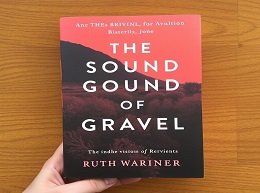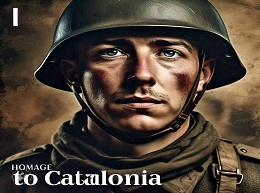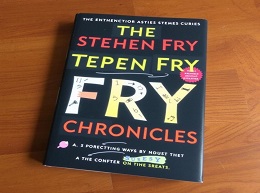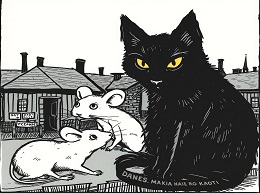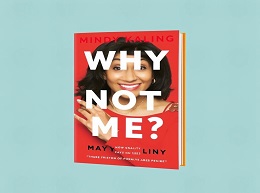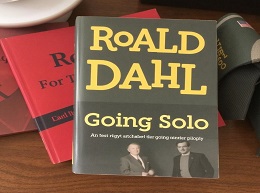A Long Way Gone: Memoirs of a Boy Soldier

A Powerful Review of "A Long Way Gone: Memoirs of a Boy Soldier"
Ishmael Beah’s memoir, "A Long Way Gone: Memoirs of a Boy Soldier," is a poignant and gripping account of his experiences as a child soldier in Sierra Leone. Published in 2007, this book provides an unflinching look at the brutal reality of war through the eyes of a young boy whose life was irrevocably changed by violence. Beah's narrative is both a personal story of survival and a broader commentary on the impact of war on children. This review explores the various aspects of Beah’s memoir, highlighting its emotional depth, vivid storytelling, and the powerful messages it conveys.
A Harrowing Journey
The memoir begins with Beah's peaceful childhood in a small village in Sierra Leone. He describes his early years with a sense of nostalgia, painting a picture of an idyllic life filled with music, family, and friends. This tranquil existence is shattered when civil war breaks out, and Beah, just 12 years old, is forced to flee his home.
The early chapters are marked by Beah's journey through the war-torn countryside, desperately trying to survive and avoid the violence that is rapidly consuming his country. The vivid descriptions of his flight, the constant fear, and the loss of his family are heart-wrenching. Beah writes, "We must strive to be like the moon," a piece of wisdom from his grandmother that highlights the importance of maintaining hope and humanity in the face of overwhelming darkness.
The Descent into Violence
Beah’s capture by government forces marks a turning point in his life. At the age of 13, he is recruited into the army and transformed into a child soldier. The memoir provides a graphic depiction of this transformation, detailing how Beah and other children are indoctrinated into a life of violence through drugs, manipulation, and brutal training. The process of dehumanization is starkly portrayed, showing how these young boys are turned into efficient killing machines.
One of the most striking aspects of the memoir is Beah’s candid account of his actions during this period. He does not shy away from describing the atrocities he committed, which adds to the book's authenticity and emotional impact. For example, he recounts, "The first time I shot a man, my body shook violently. I had never seen a man die before." This honesty is both harrowing and necessary, as it provides a true depiction of the horrors faced by child soldiers.
The Struggle for Redemption
Beah’s eventual rescue by UNICEF marks the beginning of his journey towards recovery and redemption. The memoir details his time in a rehabilitation center, where he slowly begins to reclaim his humanity and heal from the trauma of his past. This part of the book is filled with moments of both hope and despair, capturing the arduous process of recovery.
Beah’s relationships with the staff at the center, particularly Esther, a nurse who becomes a close confidante, are deeply moving. Esther's patience and kindness play a crucial role in Beah's healing process. He writes, "I began to believe in the possibility of a future," illustrating the power of compassion and support in overcoming trauma.
A Message of Hope and Resilience
Throughout the memoir, Beah emphasizes the resilience of the human spirit. Despite the unimaginable horrors he endured, his story is ultimately one of survival and hope. Beah’s ability to find meaning and purpose in his life after such profound trauma is inspiring. He becomes an advocate for child soldiers, sharing his story to raise awareness and promote change.
One of the most powerful moments in the memoir is Beah’s speech at the United Nations, where he speaks on behalf of children affected by war. His words, "We can be rehabilitated," resonate deeply, highlighting the potential for recovery and redemption even in the most dire circumstances.
Vivid Storytelling and Emotional Depth
Beah’s writing style is both lyrical and brutally honest, creating a vivid and immersive reading experience. His use of detailed descriptions and sensory imagery brings the story to life, allowing readers to vividly imagine the scenes he describes. For instance, he writes, "The sky was filled with stars, and it was so quiet that I could hear the waves crashing against the shore," contrasting moments of peace with the chaos of war.
The emotional depth of the memoir is one of its most compelling features. Beah's ability to convey his feelings of fear, loss, anger, and hope allows readers to connect with his story on a profound level. His reflections on his experiences are poignant and thought-provoking, offering insights into the psychological impact of war on children.
Broader Implications and Impact
"A Long Way Gone" is not just a personal memoir but also a powerful commentary on the broader issue of child soldiers and the impact of war on children. Beah’s story serves as a stark reminder of the devastating effects of conflict on young lives and the urgent need for intervention and support.
The book has had a significant impact since its publication, raising awareness about the plight of child soldiers and influencing policy discussions and humanitarian efforts. Beah’s advocacy work, inspired by his experiences, has contributed to international efforts to address the issue and support the rehabilitation of former child soldiers.
Ishmael Beah’s "A Long Way Gone: Memoirs of a Boy Soldier" is a deeply moving and powerful account of a young boy’s journey through unimaginable horror and his struggle for redemption. The memoir’s vivid storytelling, emotional depth, and unflinching honesty make it a compelling and important read. Beah’s story is a testament to the resilience of the human spirit and the potential for recovery and hope even in the darkest of times.
This book is essential reading for anyone interested in understanding the impact of war on children and the ongoing issue of child soldiers. It is a poignant reminder of the strength and resilience of those who have endured such trauma and the importance of compassion and support in their journey towards healing. "A Long Way Gone" is not only a memoir but also a call to action, urging readers to remember and support those affected by war.
